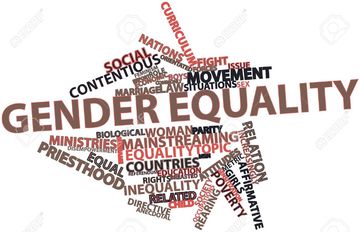UGC Notifies Gender-Neutral Anti-Sexual Harassment Regulations
This is one of the most important moves that will help create a safe working and study environment in India. The University Grants Commission has notified India’s first gender- neutral regulations related to sexual harassment.
A workspace, a classroom, a late night drive home, a party at a club, can be equally safe or unsafe for a woman, man, and the gender fluid. Sexual harassment and abuse, both physical, verbal or mental is harmful and traumatic for a man as it is for a woman. The conversations around harassment need to be made inclusive, and this notification is a step towards that.
What does this notification really mean?
The notification makes it compulsory for higher educational authorities across the country to register complaints of harassment and abuse from all genders, and take prompt action.
The person who is alleging sexual harassment, assault does not always have to register the complaint in person. A friend or family member can also register a complaint on behalf of the victim with the University’s Internal Complaints Committee.
The Saksham report brought out in 2013 by the Delhi University highlights the measures taken for gender sensitization by colleges, and the programs different campuses run. The 203-page report, which talks about masculinity, laws, the Vishaka Committee guidelines and gender in contemporary India, stresses on the fact that the anti-sexual harassment law only provides a way for women employees to register complaints and claim protection.
The UGC notification on gender neutral anti-sexual harassment regulations, will help broaden the understanding of sexual assault and it’s severe implications on men, and sexual minorities as well.
This is a much needed notification because it widens the conversation, and recognises the various communities and stakeholders of the higher education system, that in turn generates young professionals, entrepreneurs into the workspace.
Every other day we are confronted with news about a suicide by a male college student, and often interpret that as the tragic result of ragging or academic pressure. But there could be a myriad other reasons behind such extreme steps, and some less extreme but as alarming ones such as depression and anxiety. The reasons can be sexual harassment and abuse, talking about which is still seen as a taboo in higher educational institutions.
Stringent laws and measures are in place for women who have been victims of harassment at workplaces, educational institutions and at home, and rightly so. However, harassment itself is actually gender neutral and the laws and regulations combating should also be similar.
This notification is also important for another reason. It clearly underlines the need to protect sexual minorities too, a community that has often suffered silently.
How does this work?
The victim has to register their complaint with the university’s internal complaints committee. For example the Delhi University’s Internal Complaints Committee
, was constituted in August 2015 and comprises of six DU professors and one external member.
A sexual harassment complaint has to be registered within three months of the incident. Once this has been brought to the notice of the committee an inquiry is conducted, and if needed a case is registered with the legal authorities.
By Anjini Bist






.JPG?tr=w-76, h-57,fo-auto)

.jpg?tr=w-76, h-57,fo-auto)







